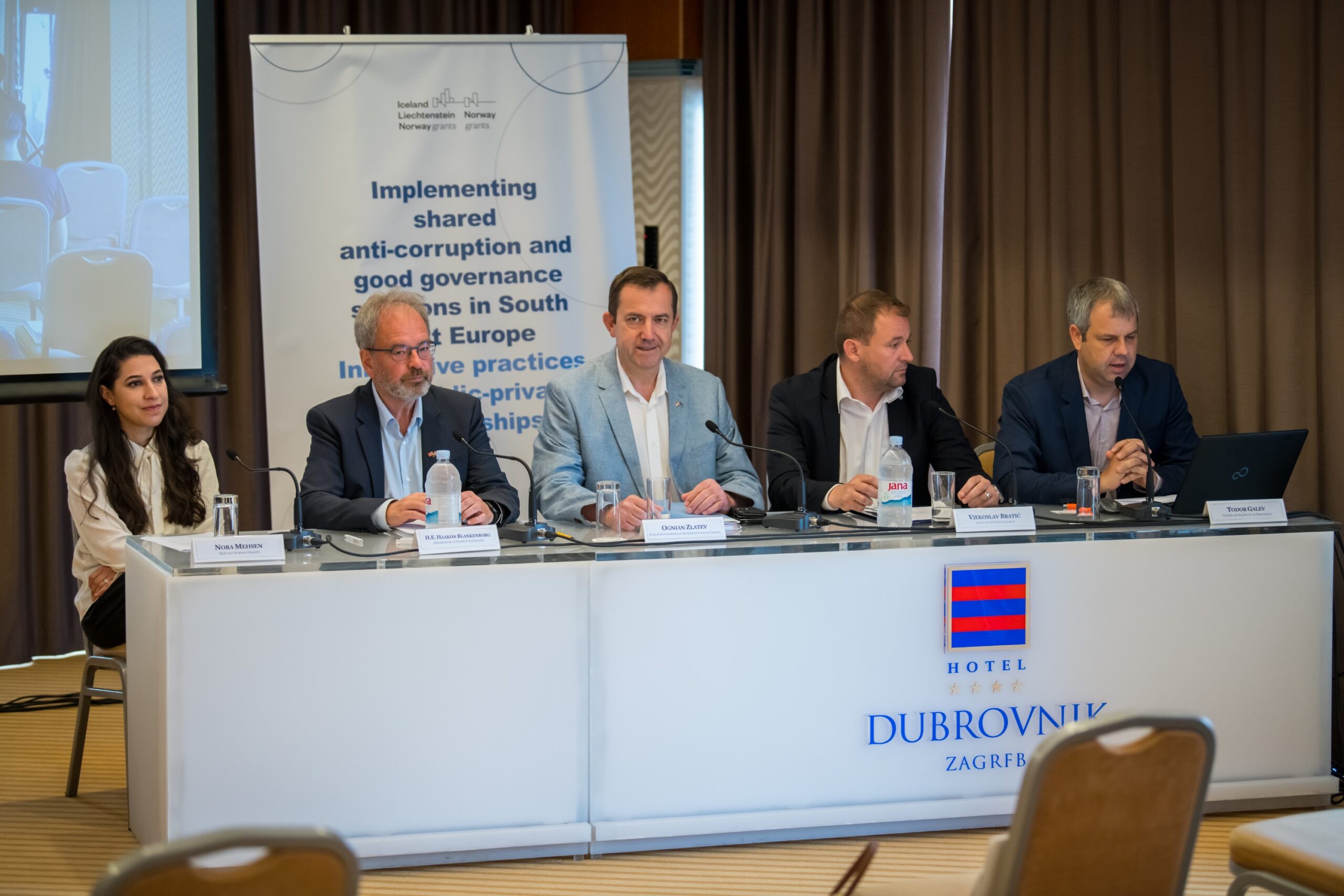Members of regional platform R2G4P, which is formed in order to create common solutions for good governance through civil society and government partnership, of which Center for democratic transition is also a member, organised significant trainings and political forums in Budapest and Zagreb.
Three-day regional training was held in Budapest on 18-20 May 2022. This training explored new topics and areas, such as:
- the conceptual framework of illicit finance and offshore wealth
- the role of the Financial Intelligence Units in the fight against illicit finance, money laundering and terrorist financing;
- the use of big data and online surveys for assessing corruption risks;
- best practices for achieving impact through policy research and advocacy.
During the three-day training, the speakers underlined the need of stronger money laundering controls, automatic exchange of tax information, public disclosure of beneficial ownership, cash-payment limits and country level reporting of company revenues. Also, it is mentioned that the detection of illicit financial flows and prevention of profit shifting towards tax heavens could further be achieved through stricter and more regular monitoring over shell companies, the mispricing of invoices, and the transactions with large denominations banknotes and cryptocurrencies.
This training was dedicated to the use of big data for assessing corruption risks in public procurement, detecting irregularities in politically-connected companies and improving the process of checking asset declarations.
Another policy forum was held on 7 June 2022 in Zagreb where it was discussed how the anti-corruption fatigue and entrenched state capture networks can be effectively counteracted.
Members of the Regional Good Governance Public-Private Partnership Platform (R2G4P) presented their first SEE Good Governance Report which focuses on two of the most challenging governance vulnerabilities in the region: the integrity of the public procurement systems and the management of the energy sector. The panelists agreed that the levels of corruption and rent-seeking rise in times of crisis. The lack of trust in public institutions has led to low rates of vaccination against COVID-19, while at the same time some companies have benefited by monopolising the procurement contracts in the medical sector.
On 8 June 2022 in Zagreb, the Regional Good Governance Public-Private Partnership Platform (R2G4P) organized a one-day summer school, where it was explained how integrated procurement and company data could be used in order to identify red flags and detect potential corruption risks. Also, it was presented how combining expert’s assessments with big data could enable the evaluation of state capture at national and sectoral level. The summer school concluded with practical exercises in smaller groups, where the participants had the opportunity to discuss and create their own corruption risk assessment methodologies and indicators.



